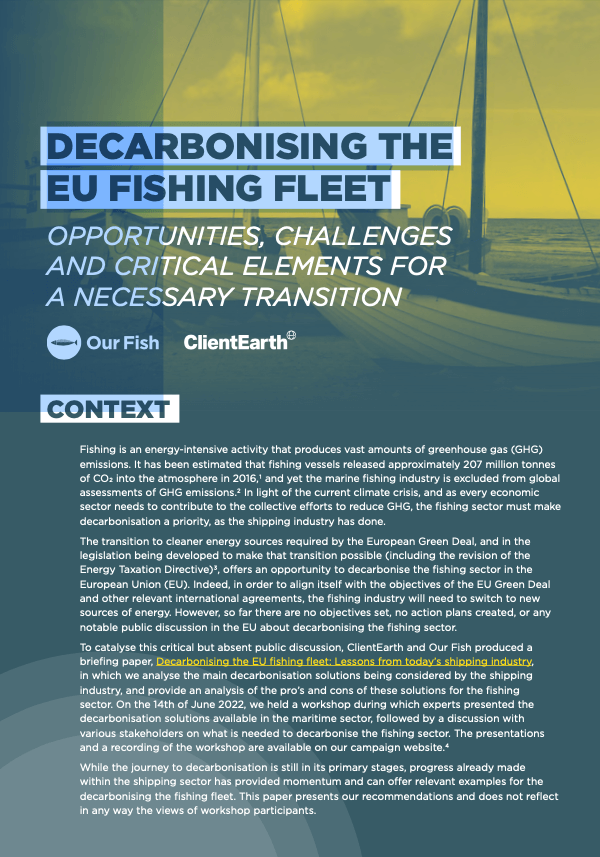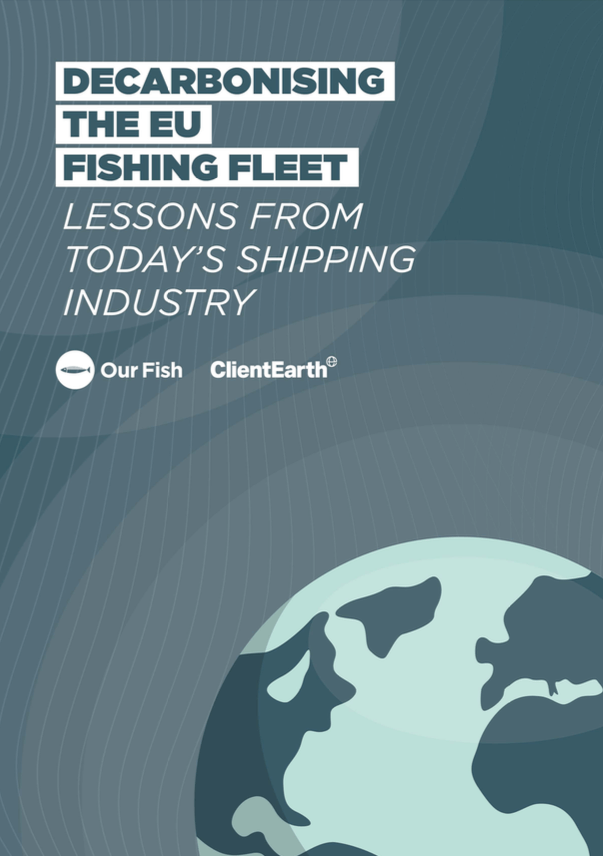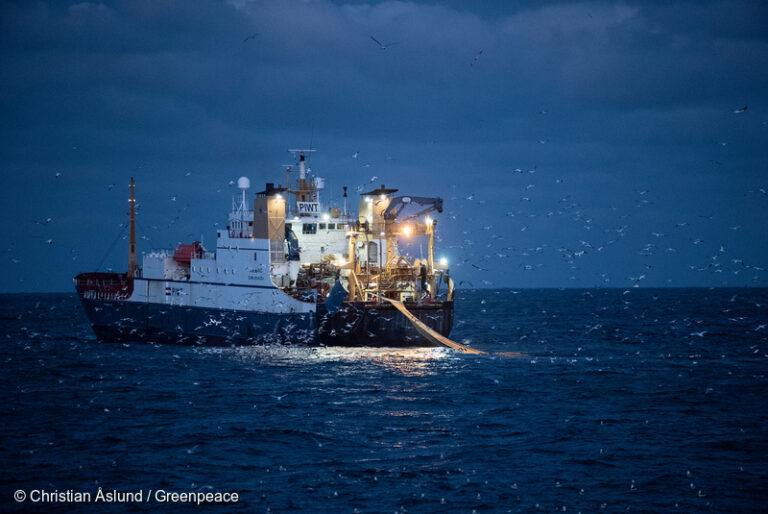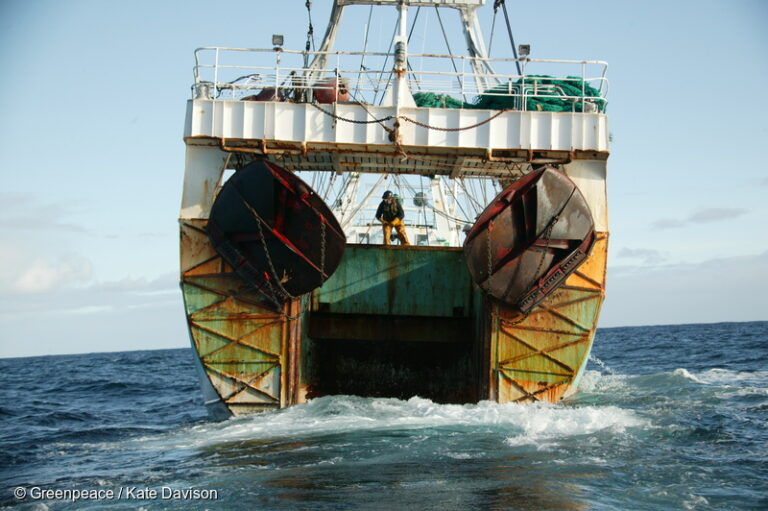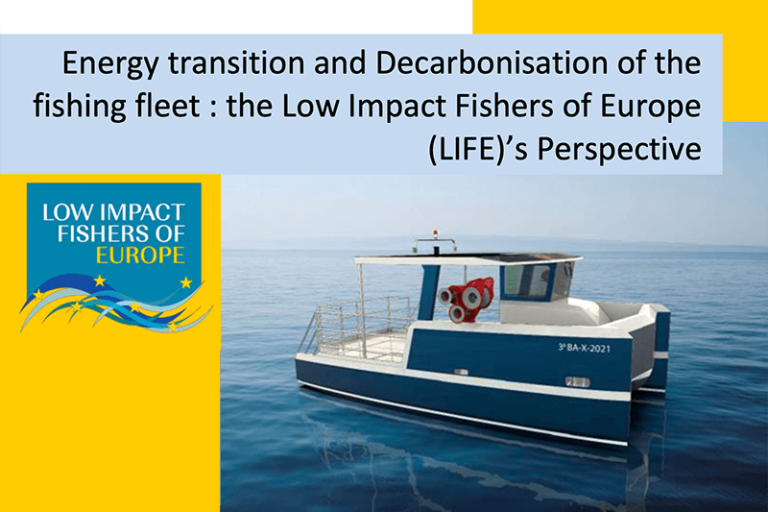The EU has committed to reducing emissions by 55% by 2030 and to becoming carbon neutral by 2050. And while fish as protein may have a smaller carbon footprint than terrestrial farming, many methods use excessive fuel and employ destructive methods.
The EU is currently reviewing the Energy Taxation Directive, providing a critical opportunity for the EU to turn commitments into action by removing fuel subsidies for the fishing industry and driving a transition to low-carbon fishing that does not cause environmental destruction, is not reliant on foreign sources of fossil fuels, and is not heavily dependent on fish imports.
Watch this recording of our workshop, which explores how the EU can decarbonise the fishing industry. The speakers include experts sharing the latest research and progress in maritime decarbonisation, while the workshop investigates the opportunities to apply international experience in the EU, and help identify gaps in achieving decarbonisation of the EU fishing fleet.
Presentations:
- Examples from Norway. Cecilia Gabrielii, SINTEF Energy Research, Norway
- Decarbonisation in EU Fisheries, George White Hydrogen Systems Engineer, CMB.TECH
- Decarbonising the EU Fishing Sector, Maikel Arts, General Manager Market Innovation, Wärtsilä
Briefing paper: Decarbonising the EU Fishing Fleet – Opportunities, Challenges and Critical Elements for a Necessary Transition
On the 14th of June 2022, we held a workshop during which experts presented the decarbonisation solutions available in the maritime sector, followed by a discussion with various stakeholders on what is needed to decarbonise the EU fishing sector. This paper is aimed at sharing recommendations and resources developed as a result of the June 2022 workshop, and to instigate action on the necessary path to decarbonisation.
See also:
Read the briefing paper: Decarbonising the EU Fishing Fleet: Lessons from Today’s Shipping Industry
While the journey to decarbonisation is in its primary stages, progress already made within the maritime sector has provided momentum and offers an incremental pathway for the decarbonisation of the fishing fleet. In order to align itself with the objectives of the EU Green Deal and other relevant international agreements, the global fishing industry will need to switch to new sources of energy. The purpose of this briefing paper is to present a feasibility analysis of batteries, synthetic fuels and wind propulsion for fishing vessels by examining examples from the shipping industry, while also considering the advantages and challenges presented by each source of energy.

